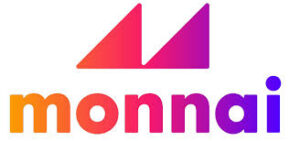DORA: A Complete Overview of Europe’s Digital Operational Resilience Act

The Digital Operational Resilience Act (DORA) became fully applicable on 17 January 2025, introducing mandatory ICT risk management requirements for financial institutions across the European Union. This comprehensive guide explains DORA compliance requirements, who must comply, and what financial entities need to know about digital operational resilience regulations.
What Is DORA? Understanding the Digital Operational Resilience Act
DORA (Regulation EU 2022/2554) is EU legislation that establishes uniform requirements for digital operational resilience across the financial sector. The regulation addresses ICT risk management, incident reporting, resilience testing, and third-party provider oversight.
Before the legislation came into place, cybersecurity and operational resilience requirements varied significantly across EU member states. Financial institutions faced inconsistent incident reporting timelines, ranging from four hours to several days. Critical technology providers operated with minimal regulatory oversight despite their systemic importance to financial services.
Why DORA Compliance Matters for Financial Institutions
Europe’s financial sector depends heavily on cloud providers, payment processors, and cybersecurity firms. When major technology outages occurred in the early 2020s, the impact cascaded across multiple countries while regulators struggled to coordinate responses.
DORA compliance ensures financial entities can withstand, respond to, and recover from ICT-related disruptions including cyberattacks, system failures, and operational outages. The regulation creates a harmonized framework for digital resilience across all EU financial services.
Who Must Comply With DORA Regulations?
Financial Entities Covered by the Act:
DORA applies to virtually all financial institutions operating in the EU:
- Banks and credit institutions
- Investment firms and asset managers
- Insurance and reinsurance companies
- Payment service providers
- E-money institutions
- Crypto-asset service providers
- Pension funds
- Credit rating agencies
- Crowdfunding platforms
ICT Third-Party Service Providers Rules
DORA extends regulatory requirements to critical ICT third-party providers, including:
- Cloud computing platforms
- Data center operators
- Cybersecurity service providers
- Software providers for financial services
This represents a significant regulatory innovation. Major technology companies now face direct EU financial supervision when providing services to financial institutions.
Five Core DORA Requirements for Financial Services
1. ICT Risk Management Framework Requirements
Financial institutions must establish comprehensive ICT risk management frameworks covering:
- Threat identification and risk assessment
- Preventive security controls and mitigation measures
- Continuous monitoring of ICT systems
- Board-level oversight and governance
- Dedicated ICT risk management committees
The legislation mandates that technology risk receives strategic attention at the executive level. Financial entities with engaged boards identified and resolved vulnerabilities 40% faster than organizations treating DORA as a standard compliance exercise.
2. ICT Incident Reporting Requirements
DORA establishes standardized incident reporting procedures across the EU. When significant ICT-related incidents occur, financial institutions must provide:
- Immediate initial notification to competent authorities
- Intermediate reports as situations develop
- Comprehensive final reports detailing incident impact and resolution
This harmonized reporting framework enables regulators to coordinate responses across member states and identify systemic threats affecting multiple institutions.
3. Digital Operational Resilience Testing
Financial entities must conduct regular resilience testing including:
- Threat-led penetration testing
- Scenario-based stress testing
- Vulnerability assessments
- Advanced testing for systemically important institutions
Resilience testing during DORA implementation uncovered critical vulnerabilities: outdated security in legacy systems, single points of failure in network architecture, and backup systems that failed under stress conditions.
4. Third-Party ICT Risk Management
DORA requires financial institutions to:
- Conduct thorough due diligence on ICT service providers
- Implement continuous performance monitoring
- Establish contracts with explicit resilience requirements
- Address concentrated dependencies on critical providers
When multiple banks rely on the same cloud provider for critical operations, that provider becomes systemically important. Financial institutions responded by diversifying providers, negotiating enhanced audit rights, or building hybrid systems with automatic failover capabilities.
5. Information and Intelligence Sharing
DORA encourages threat intelligence sharing between financial institutions and regulatory authorities. When one bank identifies a new cyberattack vector, sharing that intelligence enables other institutions to implement preventive defenses.
Participation in threat-sharing networks exceeded initial projections, with financial entities increasingly viewing collective cybersecurity as a competitive advantage.
Implementation Timeline and Compliance Dates
- 14 December 2022: EU Parliament and Council adopted DORA
- 16 January 2023: DORA entered into force, beginning the transition period
- 17 January 2025: Full application date for all DORA requirements
Financial institutions invested over 30 billion euros collectively in infrastructure upgrades, cybersecurity enhancements, and compliance programs during the transition period.
Impact on Financial Services Operations
Organizational Changes for DORA Compliance
Most large financial institutions created dedicated digital operational resilience functions reporting directly to boards. Technology risk management moved from IT departments to executive leadership, with board meetings dedicating substantial time to ICT risk discussion.
Vendor Management Under DORA
Vendor contracts expanded significantly with new resilience requirements and audit rights. Financial entities now demand stronger performance guarantees, business continuity plans, and exit strategies from technology service providers.
Regulatory Coordination Across EU Member States
The European Supervisory Authorities (EBA, EIOPA, ESMA) now coordinate DORA enforcement and share incident information across borders. When incidents affect multiple countries, regulatory responses synchronize within hours rather than days.
Global Impact of DORA Beyond the EU
DORA’s influence extends internationally. Regulators in the United Kingdom, Singapore, Australia, and Canada developed similar digital operational resilience frameworks based on DORA principles.
For multinational financial institutions, the act often becomes the baseline standard globally. This is because maintaining separate frameworks by jurisdiction is operationally complex.
Cloud service providers and technology vendors now offer enhanced service tiers with improved monitoring, audit rights, and resilience guarantees to meet DORA requirements. These capabilities are becoming standard expectations worldwide.
Measuring Effectiveness and Outcomes
Early indicators show positive results. Financial institutions report improved infrastructure resilience, clearer incident response protocols, better vendor oversight, and faster recovery capabilities.
By measurable standards (system uptime, incident response times, recovery speeds), the EU financial system demonstrates greater operational resilience than before DORA implementation.
The ultimate test arrives during the next major incident: sophisticated cyberattacks targeting multiple institutions, critical infrastructure failures, or coordinated ransomware campaigns. The framework should minimize disruption and accelerate recovery.
Why DORA Matters for Consumers and Businesses
DORA protects every digital financial transaction in Europe. Withdrawing cash, making payments, transferring funds, and filing insurance claims all depend on resilient digital systems.
When financial technology fails, businesses cannot operate and consumers cannot access funds. DORA compliance ensures financial institutions can maintain operations during disruptions or recover quickly when prevention fails.
Key Takeaways About DORA Compliance
The Digital Operational Resilience Act establishes unified ICT risk management standards across EU financial services. DORA requirements cover risk management frameworks, incident reporting, resilience testing, third-party oversight, and information sharing.
Financial institutions must demonstrate board-level governance of technology risks, conduct regular resilience testing, manage third-party provider risks, and participate in threat intelligence sharing.
The compliance represents a fundamental shift in how European financial services manage digital operational resilience. The regulation creates stronger systems, improved oversight, coordinated responses across member states, and enhanced protection for consumers and businesses relying on digital financial services.
As financial services grow increasingly digitalized and interconnected, DORA provides the regulatory framework necessary to maintain stability, manage technology risks effectively, and ensure the resilience that modern financial systems require.







